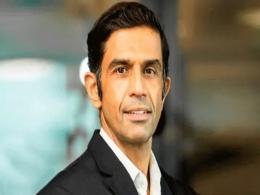Japan’s Sumitomo Corp. is looking to invest in the Indian clean energy sector and has been scouting for opportunities.
This comes in the backdrop of India leveraging its strategic partnership and pitching to Japanese investors to invest in the energy-starved country. Also, the Bank of Japan announced negative interest rates earlier this year.
Japan’s SoftBank Group Corp. is already one of the prominent overseas investors in the Indian solar space. SoftBank’s joint venture—SB Energy which has Bharti Enterprises Ltd and Taiwan’s Foxconn Technology Group as partners—has announced a $20 billion investment in India’s solar power sector.
“Given the opportunities in India’s clean energy space, Sumitomo Corp. has been looking at this segment to invest and build their own assets,†said a person aware of the development requesting anonymity.
InfraCircle reported on 8 April about an Indian delegation visiting Japan for a roadshow to present investment opportunities in state-run firms such as Steel Authority of India Ltd (SAIL), Rashtriya Ispat Nigam Ltd, NTPC Ltd, NHPC Ltd, Oil and Natural Gas Corp. Ltd and Indian Oil Corp. Ltd.
The Narendra Modi-led National Democratic Alliance government has set a target of 175 gigawatt (GW) of renewable energy projects by 2022. Of this, 100GW is expected to be in the solar power domain and 60GW in wind power. India has an installed capacity of 26.8GW of wind and 7.6GW of solar power at present.
Queries emailed to Sumitomo Corp. on 8 August remained unanswered.
Headquartered in Tokyo, Sumitomo Corp. has invested in wind energy projects in Japan, Belgium, US, China and South Africa.
Experts believe that foreign investment in the Indian renewable energy sector has a lot to do with the government’s efforts to prop up the sector.
“While coal-based generation remains the primary focus area, it has become a global trend wherein the renewable energy sector is witnessing increasing share in the energy circuit. Investors are particularly interested in investing in renewable projects,†said Arvind Mahajan partner and head, infrastructure and government services, at consulting firm KPMG in India.
Japan is already playing an important role in India’s quest for infrastructure development by assisting in important projects such as the dedicated freight corridor for railways. Also, after Indian Prime Minister Narendra Modi’s visit to Japan in 2014, the Japan Plus initiative was launched wherein a select group of officials were tasked with expediting Japanese investments in the country.
This comes in the backdrop of a growing consolidation in the renewable energy sector. Also, the National Institution for Transforming India Aayog will shortly come up with a national energy policy in the next two-three months. The policy, which will form the basis of India’s energy security paradigm, will have a focus on clean energy resources such as solar and natural gas.
India wants to improve its per capita electricity consumption of 1,010 kWh. In comparison, China and developed economies have a per capita consumption of 4,000kWh and 15,000kWh, respectively.
Like this report? Sign up for our daily newsletter to get our top reports.







